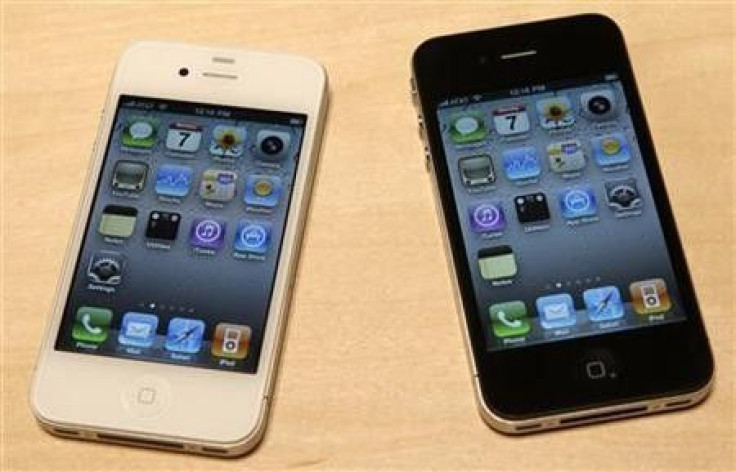How much iPhone worth as standalone business?

iPhone, just three years old and already attained cult status, has catapulted Apple (AAPL) to one of the largest technology companies in the world.
In this context, let's take a look at how much iPhone is worth if it is a standalone company.
Stock analysis firm Trefis said iPhone's standalone business is worth more than all but 8 companies in the world.
We estimate that the iPhone accounts for 53 percent of Apple's stock value and assign a price estimate of $418 for Apple, which is about 40 percent ahead of its current price, Trefis said.
Trefis noted that the Apple iPhone is worth $209 billion of its estimated $391 billion (bln) value for Apple, which would make the iPhone one of the largest standalone companies in the world.
In the consumer sector, iPhone surpasses Coca-Cola ($138 bln), Pepsi ($105 bln), Kraft Foods ($62 bln), Unilever ($84 bln), Colgate ($43 bln), Philip Morris ($105 bln), Anheuser-Busch ($94 bln) and Nike ($33 bln). Only Procter & Gamble, which is worth $243 billion, is bigger than iPhone in this sector.
iPhone, which went on sale on June 29, 2007, is bigger than 9 of 12 largest technology companies including Oracle ($181 bln), Intel ($151 bln), Cisco ($136 bln), Siemens ($99 bln), HP ($130 billion), Texas Instruments and Google ($204 bln).
Only Microsoft ($262 bln), IBM ($234 bln), and of course Apple itself, are bigger than the iPhone as a standalone business in the technology sector.
In the Energy, Metals and Mining industry, iPhone is bigger than BP ($130 bln), Chevron (166 bln), Petrobras ($144 bln), Vale ($165 bln), Rio Tinto ($130 bln) and Shell (NR, $201 bln).
Only Exxon Mobil ($349B bln), Petro China ($225 bln) and BHP ($236 bln) are larger than the iPhone as a standalone business.
On the pharma sector, iPhone tops all of leading drug makers including Pfizer ($132 bln), Merck ($106 bln), GlaxoSmithkline ($103 bln), Johnson & Johnson ($173 bln), Roche ($126 bln) and Novartis ($128 bln).
In Autos, all 6 of the largest automotive companies have less than $100 billion in market cap except for Toyota ($119 bln) -Honda, GM, Ford, Nissan & Volkswagen.
Among the financial heavyweights, only Chinese banks ICBC ($265 bln) and China Construction Bank ($229 bln) beat iPhone. Among the rest, JP Morgan ($208 bln) and HSBC ($185 bln) come closest.
Meanwhile, iPhone exceeds 11 of 12 top telecom giants, including China Mobile ($201 bln) , Vodafone ($140 bln) and Verizon ($90 bln).
Only AT&T (224 bln) is bigger than the iPhone as a standalone business. Incidentally, AT&T is the exclusive carrier of iPhone in the U.S.
In Media, iPhone is more than all the sector heavyweights including Disney, Time Warner, Sony, Vivendi, News Corp and Viacom.
In addition, the iPhone is bigger than every retailer except Walmart ($242 bln).That means the iPhone tops the other leading 6 US retailers including Target, Amazon, eBbay, CVS, Walgreens and Home Depot.
Among Industrials and Conglomerates, only Berkshire Hathaway ($197 bln) and GE ($170 bln) come close to iPhone.
iPhone, whose development began with Apple CEO Steve Jobs' direction that Apple engineers investigate touchscreens, was created at an estimated development cost of $150 million over thirty months during a secretive and unprecedented collaboration with AT&T Mobility-Cingular Wireless.
iPhone was introduced by Apple's CEO Steve Jobs on January 9, 2007 at Macworld 2007, after Cingular gave Apple the liberty to develop the iPhone's hardware and software in-house.
There are four generations of iPhone models, and they were accompanied by four major releases of iOS operating system. In June, Apple released the iPhone 4, which has two cameras for FaceTime video calling and a higher-resolution display.
For the quarter ended Sept.25, Apple sold 14.1 million iPhones, representing an increase of 91 percent from last year.
© Copyright IBTimes 2024. All rights reserved.











